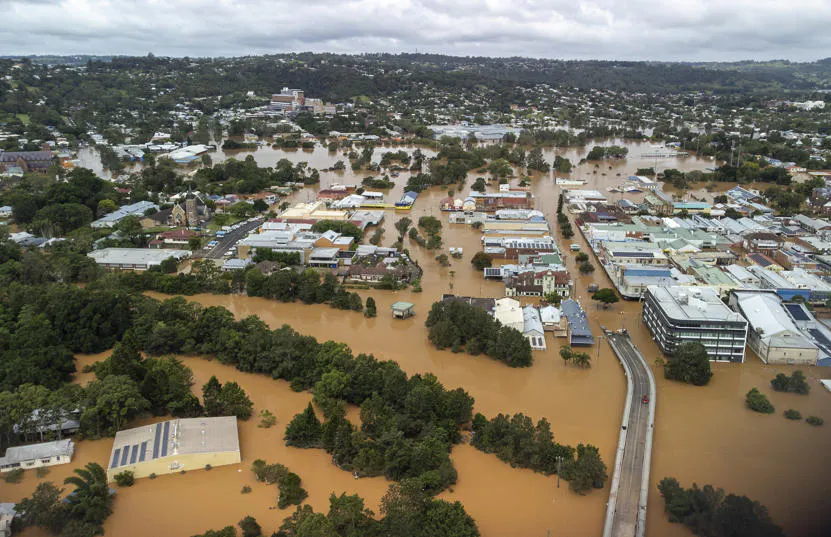When disaster like floods and fire strikes communities, people need access to urgent assistance like food and shelter. Our members and volunteers can be mobilised to provide assistance during these times of emergency.

The Society has a long history of responding to natural disasters, which includes fundraising appeals and providing disaster relief funding for affected communities to address immediate needs and support longer-term recovery. Assistance to communities in the aftermath of natural disasters is delivered through staff, members, and volunteers.
When disaster happens, the Society immediately responds by opening up a public appeal for general donations, and these funds are supported by Government donations.
These emergency funds are then distributed to individuals as 'Emergency Relief Funds' (ERF).
Members and volunteers typically assist during times of crisis by:
- Taking applications for the Society’s disaster relief cash payments scheme
- Providing pastoral care and emotional support for those who need it
- Establishing emergency centres in disaster zones
- Assisting people staying in temporary emergency centres
- Distributing food and other goods via the van service
- Assisting in support centres on the emergency hotline
- Referring people to Conferences, and
- Preparing snack and toiletry packs for those staying in temporary accommodation.
Advocacy
We understand the upheaval, trauma, challenges, grief and exhaustion felt by many in the aftermath of natural disasters and this shapes our advocacy work.
The Society has representation on National Emergency Management Australia’s “Tell Us Once” Working Group and Australia’s Charities Coordination Group.
We advocate for solutions that are community-informed and driven, with funding that prioritises local for-profit and not-for-profit organisations and builds community resilience.
We call for improved:
- funding for capacity building so that organisations can skill up their people to respond in a professional and timely way when a crisis arises
- coordination of, and information on, emergency services at all levels of government and non-government agencies
- case management to help people navigate their way to the payments, services and supports they need
- real-time data on disasters as they unfold to inform planning and service responses
- processes that enable organisations to apply directly to the Disaster Ready Fund rather than in partnership with state and territory government agencies
- exemptions to the Commonwealth grant and procurement rules, including the establishment of standing panels (of service providers) in high-risk areas

